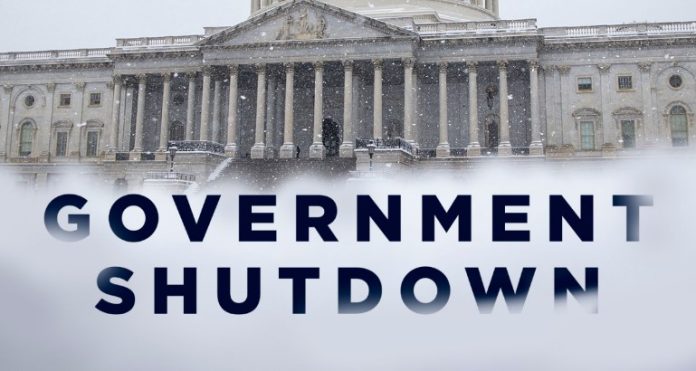A government shutdown occurs when the government fails to pass or enact funding legislation to finance government operations and agencies. As a result, non-essential government services and agencies may temporarily close down until funding is restored. This situation often arises when there is a disagreement between the executive and legislative branches of government over budget priorities or policy issues, leading to a lapse in appropriations.
During a shutdown, essential services such as national defense, air traffic control, and emergency medical care continue to operate, but many government employees may be furloughed or work without pay until the shutdown is resolved. Shutdowns can have significant economic and social impacts, affecting government employees, contractors, and the general public. Read about What is Direct Democracy
Causes of Government Shutdowns
Political Disputes
Government shutdowns often stem from political disagreements between the executive and legislative branches over budget allocations or policy priorities.

Budget Deadlocks
Failure to agree on a federal budget or passing continuing resolutions to fund government operations can result in a shutdown. Discover about What are the 16 Concepts of Global Politics
Effects of Government Shutdowns
Economic Impact
Shutdowns disrupt economic activities, leading to financial uncertainty, delayed payments to government contractors, and decreased consumer confidence.
Government Services Disruption
Essential government services such as national parks, passport processing, and federal loan processing may be suspended during a shutdown, affecting citizens’ daily lives.
Historical Context of Government Shutdowns
Government shutdowns are not new phenomena; they have occurred sporadically throughout U.S. history, often during periods of political gridlock. Learn about What are the 4 Types of Politics
Key Government Shutdowns in History
2013 Government Shutdown
A 16-day shutdown occurred due to disagreements over the Affordable Care Act, causing significant economic disruption and public outcry.
2018-2019 Government Shutdown
This prolonged shutdown was the result of a standoff between the Trump administration and Congress over funding for a border wall.
Legal and Constitutional Framework
The Antideficiency Act prohibits federal agencies from spending money without congressional appropriation, serving as the legal basis for shutdowns.
Steps Taken During a Government Shutdown
Furloughs
Non-essential government employees are placed on unpaid leave during shutdowns, exacerbating financial strain for many families.
Essential Services Continuation
Certain critical functions such as national security, air traffic control, and law enforcement remain operational during shutdowns to ensure public safety.
Public Opinion and Reactions
Government shutdowns often provoke public outrage and frustration, with citizens holding policymakers accountable for the impasse.
Resolution of Government Shutdowns
Negotiations and Compromises
Political leaders engage in negotiations and compromise to reach bipartisan agreements and reopen the government.
Budget Resolutions
Passing comprehensive budgets and avoiding short-term funding measures can prevent future shutdowns.
Preventive Measures Against Future Shutdowns
Implementing structural reforms to the budget process and fostering bipartisan cooperation can mitigate the risk of future shutdowns.
Global Perspectives on Government Shutdowns
Government shutdowns are not unique to the United States; several countries have experienced similar political crises with comparable consequences.
The Role of Media in Government Shutdowns
Media coverage and public discourse shape perceptions of government shutdowns, influencing political outcomes and public opinion.

Impact on Financial Markets
Government shutdowns can trigger market volatility and investor uncertainty, affecting stock prices and economic indicators.
Social Implications of Government Shutdowns
Shutdowns disproportionately impact vulnerable populations, exacerbating socio-economic inequalities and access to essential services.
Conclusion
Government shutdowns are disruptive events with profound implications for society, economy, and governance. Addressing the root causes and implementing preventive measures are crucial steps in averting future shutdowns and promoting political stability.
FAQs
- Why do government shutdowns occur?
- Government shutdowns result from political disagreements over budget allocations and policy priorities.
- How long can a government shutdown last?
- The duration of a government shutdown varies depending on the resolution of political impasses and budget negotiations.
- What are the economic consequences of a government shutdown?
- Shutdowns disrupt economic activities, leading to financial uncertainty, delayed payments, and decreased consumer confidence.
- How are federal employees affected during a government shutdown?
- Non-essential government employees may face furloughs or unpaid leave during shutdowns, impacting their financial stability.
- What measures can be taken to prevent future government shutdowns?
- Implementing structural reforms to the budget process and fostering bipartisan cooperation can mitigate the risk of future shutdowns.







